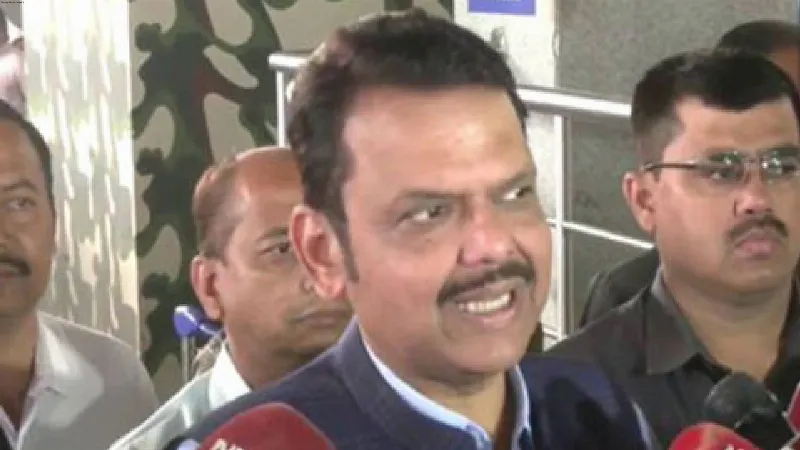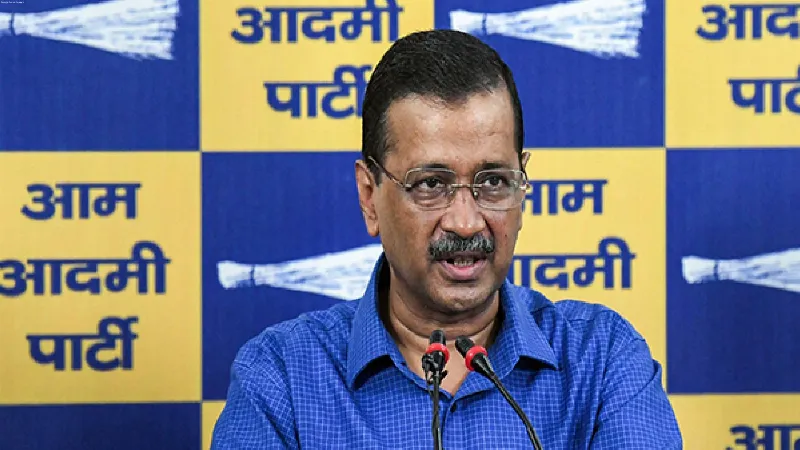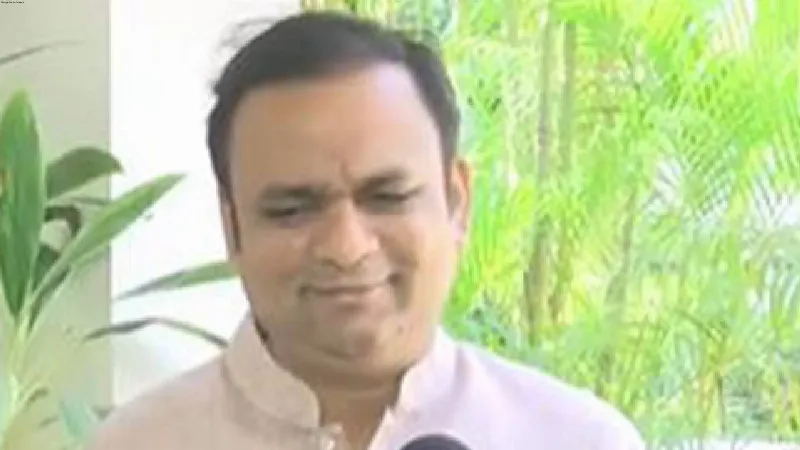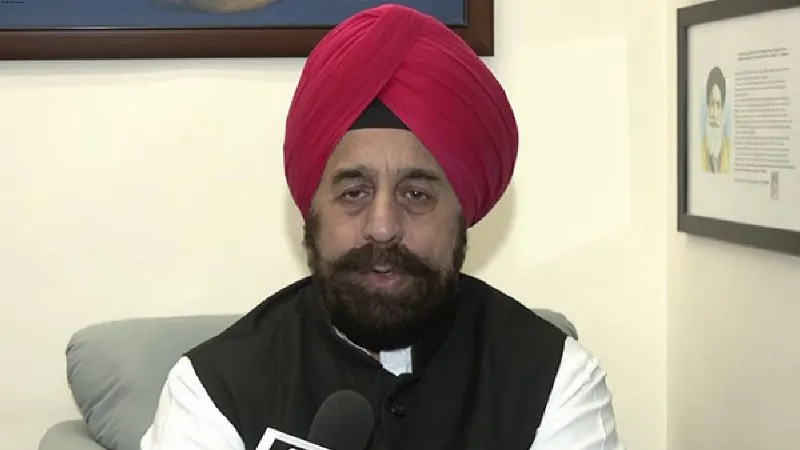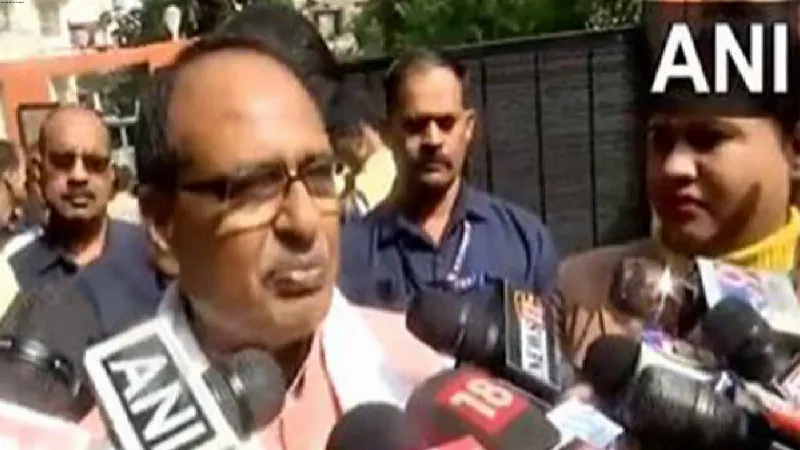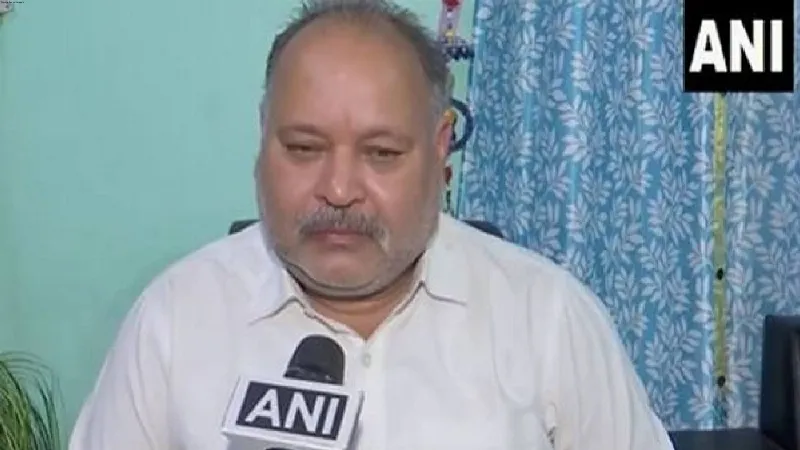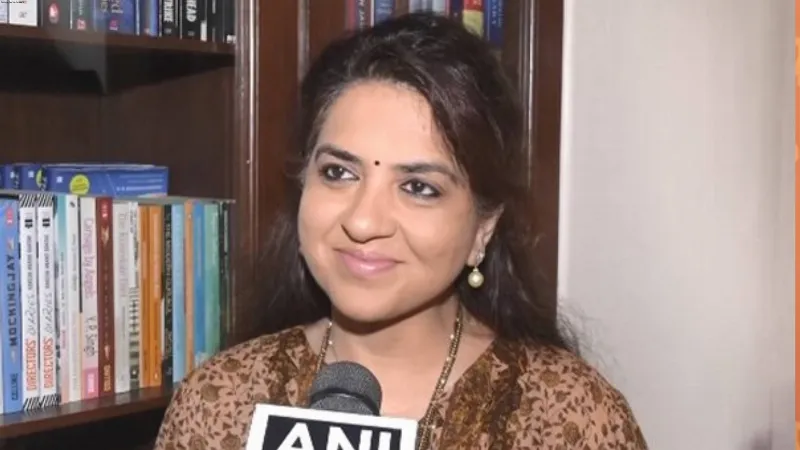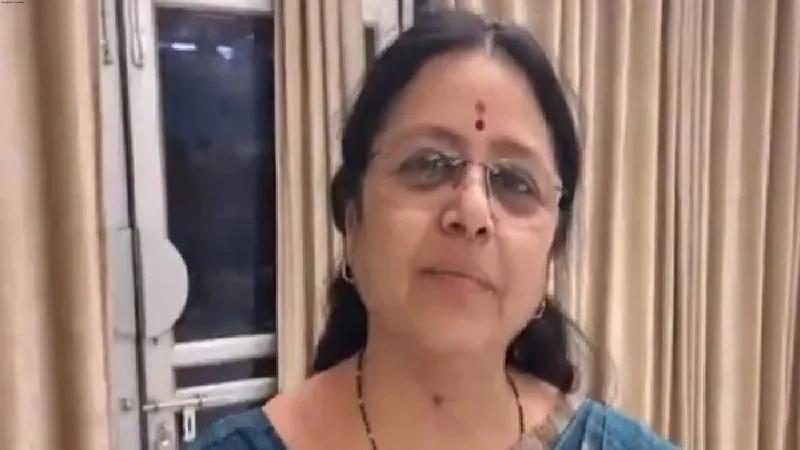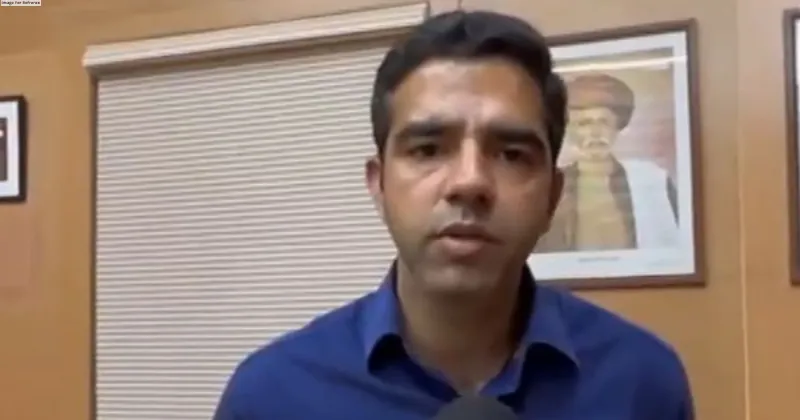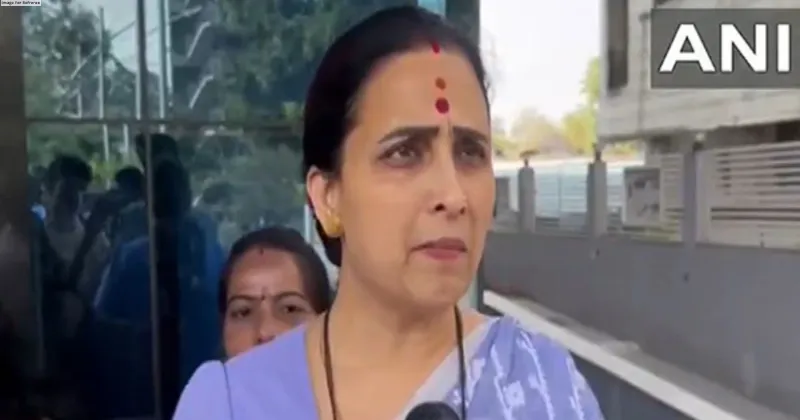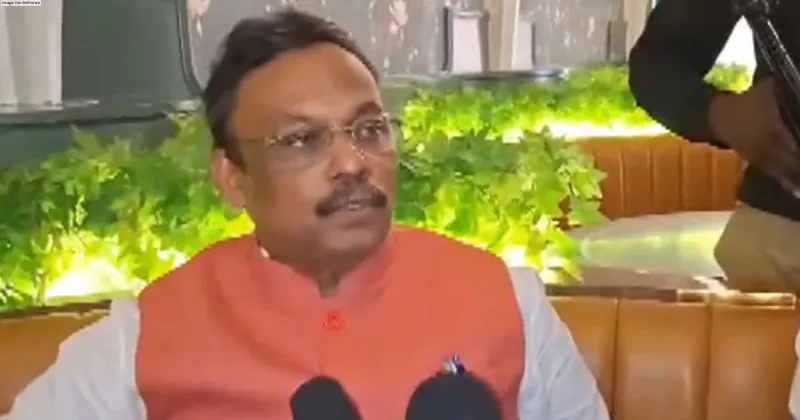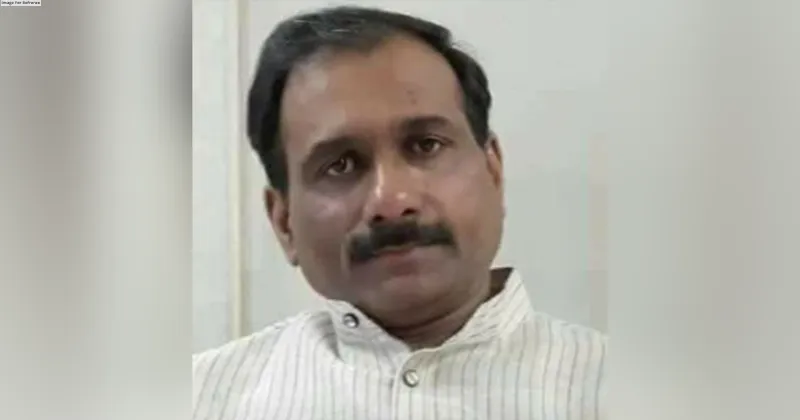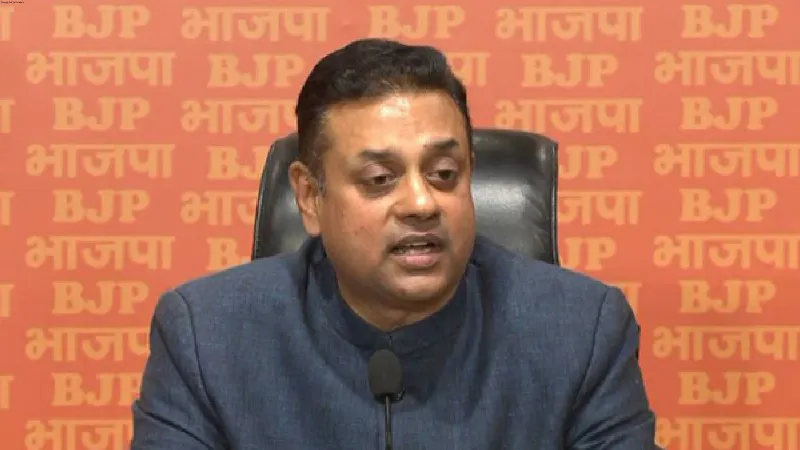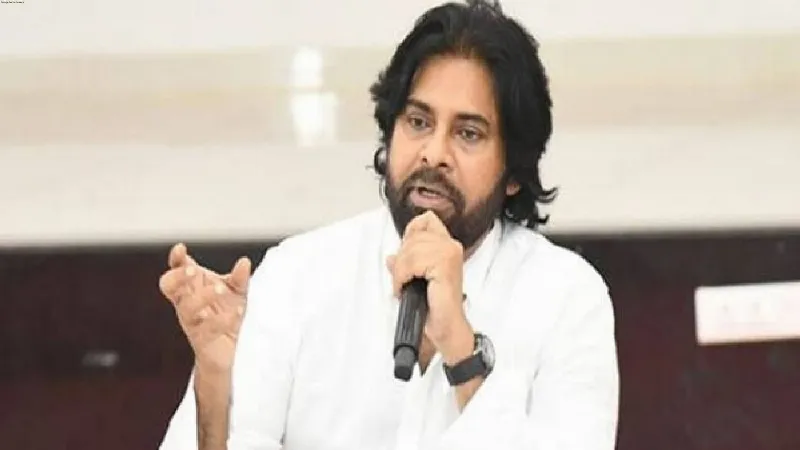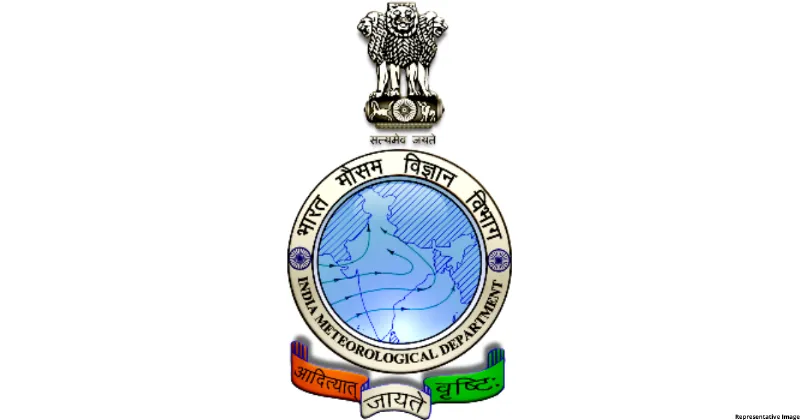Latest News
BJP-NC have been together in past, won’t be surprised if they do so again: Dr Chandra
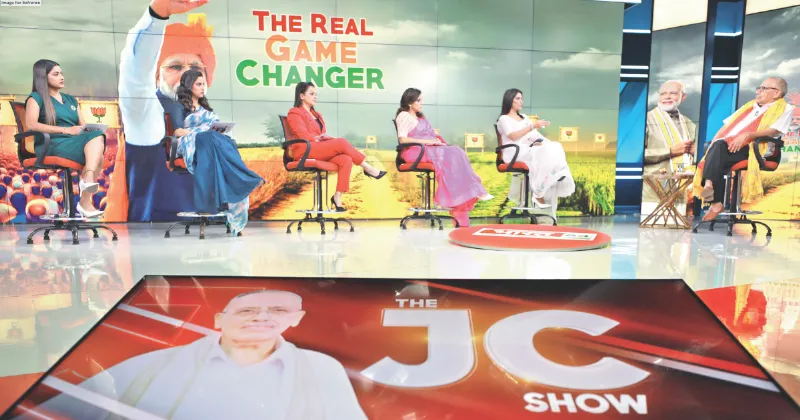
Reflecting on the recently announced Haryana election results, Dr Jagdeesh Chandra stressed that in a transformative election, Yogi Adityanath’s strategic campaigning has positioned the BJP favourably in Haryana, showcasing a unifying narrative among Hindu voters. Dr Chandra further says that while Manohar Lal Khattar enjoys electoral success, his diminishing prominence raises questions about his role amidst the party’s changing dynamics and leadership competition and that the Congress’s unexpected defeat highlights the impact of internal factionalism and the effectiveness of Amit Shah’s election strategies, leading to a re-evaluation of its leadership approach. Furthermore, Dr Chandra reveals that in the ever-shifting landscape of J&K politics, the potential for the National Conference to re-align with Modi illustrates the unpredictability of political partnerships and with leaders accepting the permanence of Article 370’s removal, the focus shifts towards constructive governance in Jammu and Kashmir, signalling a new chapter in regional politics. Excerpts... (Part II)
- What is your take on the role of Uttar Pradesh Chief Minister Yogi Adityanath as a star campaigner in the Haryana election results?
Dr Jagdeesh Chandra: Yogi has been a star campaigner for the BJP in Haryana. He held 14 public meetings, from which 9 BJP candidates emerged victorious. His focus was on uniting all Hindus to vote for the nation, and he set a new narrative: “If we divide, we will be cut.” This narrative was also echoed by RSS Chief Mohan Bhagwat, meaning both Yogi and Bhagwat were united on this theme. The people of Haryana appreciated this message and voted in favour of the BJP.
- Some people connected to Haryana politics say that Manohar Lal Khattar is fortunate. Why do they say this?
He is fortunate in two ways. First, his nominee, his protégé, or his disciple has become the Chief Minister. Second, he is lucky because Karnal is his parliamentary seat, which has five assembly constituencies, all of which BJP has won. The BJP swept Khattar’s area, which is a matter of fortune and something to be happy about. However, there is also a reason for disappointment because he can’t be called the hero; the hero now is Amit Shah. In the initial stages, Khattar played a significant role; he built the entire structure, ensured his chosen candidates got tickets, and brought in people from other parties. He even determined the constituency for Saini, who became Chief Minister. But gradually, everything started to dilute. Reports reached the top leadership indicating that the anti-incumbency factor was becoming associated with Khattar. So, as part of a strategy, he was pushed back. His photo wasn’t included on posters, and the candidates didn’t mention him. He became a silent worker, a backroom boy. Everyone has their role; initially, the party placed him at the forefront, but then he was shifted to a backroom role, and ultimately, the party won. Khattar is happy today, but there’s a feeling that with all the praise going around, he should have been in the first line as well.
- Why couldn’t the BJP’s Muslim card work in the violence-affected area of Nuh, Haryana?
Nuh is part of the Mewat region, which is connected to Rajasthan and has a strong Muslim sentiment. In the minority community, there is a general perception that they align more with Congress compared to the BJP. If given a choice, they tend to prefer Congress. This trend has been ongoing. The BJP attempted an experiment by fielding Muslim candidates in two out of three seats, but they still lost because the people’s inclination towards Congress was stronger, allowing Congress to win there.
- What were the main reasons for Congress’s unexpected defeat?
The reasons for Narendra Modi and Amit Shah’s victory can also be seen as the reasons for Congress’s defeat. The biggest factor was Amit Shah’s man-to-man management and reverse polarisation. The mobilisation among Dalits and OBCs shifted slightly away from Congress. Additionally, there was internal factionalism within Congress, with three power centres: Hooda, Selja, and Surjewala. Surjewala was focused on his son, Aditya Surjewala, who won, but there were no complaints against him. However, complaints did arise against Selja, particularly when she declared her intention to be a contender for Chief Minister at a crucial moment, which was seen as a betrayal of the party. Sonia Gandhi called her in for a discussion, and Hooda behaved maturely, not making any controversial statements. He mentioned that everyone has a right to aspire for the Chief Minister’s position, and whoever the party decides will become the candidate. However, by that time, damage had already been done. Amit Shah had hijacked that issue, and the Prime Minister also played a role, causing significant harm. It’s said that a substantial Dalit and OBC vote did not come to Congress due to the Selja factor. Meanwhile, Amit Shah executed effective man-to-man management, compounded by the internal strife within Congress. These were the key reasons for their defeat.
- Should the Haryana BJP thank Selja? Was PM Modi’s mention of Congress’s Kumari Selja in Haryana’s election rallies a calculated strategy by the BJP?
Absolutely, the Haryana BJP should thank her. Even a backroom boy deserves acknowledgment. If she hadn’t made the issue, the Dalit matter wouldn’t have come up. For the first time, Selja highlighted that Dalits are not just a vote bank; they want a share in power. This created an awareness that she wasn’t emerging as a leader, but Hooda and the Jats were. No one had any hope initially, but she sparked some hope. Then the BJP hijacked that issue, which ultimately, hurt them. Regarding the second question, Narendra Modi is certainly a ‘Mastermind’ of electoral politics. He doesn’t raise major national issues; instead, he focuses on local issues wherever he goes. He is the first Prime Minister in history to emphasise local concerns over national ones. He touches on issues that resonate with people’s hearts. Some say that this isn’t fitting for a Prime Minister, but what does that mean? The only objective of an election is to win. It’s up to him to decide whether to raise national or local issues. By bringing up Selja in his rallies, he hit the mark, and the BJP is back in power.
- After the defeat in Haryana, do you not think that at this stage in her life, Sonia Gandhi should let go of senior leaders like Kharge, Gehlot, Hooda, and Baghel, and bring the younger generation forward?
That’s exactly why Rahul Gandhi was brought forward—to promote the new generation. But what happened then? Kharge is over 80 and is the Party President, while Rahul Gandhi has a different role. It sounds good to say young people should come in, but the party is left wondering whom to bring in. Rahul Gandhi’s experiment hasn’t been entirely successful, though it has been comparatively successful. He is the owner of the party, so comparisons with others aren’t fair, as the names you mentioned are all 75+. Wisdom suggests giving them a good farewell. Someone mentioned they should take voluntary retirement, which is fine—people retire with respect. Even I took retirement 18 years ago; it’s a part of life. However, when you talk about Hooda, Gehlot, and Kharge, one must ask where are the leaders that Congress can bring forward? Although, the suggestion to replace old leadership with young leadership is valid.
- How do you view the victory of the Congress and National Conference alliance in Jammu and Kashmir?
This victory is natural and a positive sign. It represents the return of democracy to the Valley after so many years, as elections have finally taken place. The elections were peaceful, and a new government has been formed. Credit for this goes to Narendra Modi, Amit Shah, and the Election Commission. The initial signs from the government are encouraging. It is a majority government, so there’s no need for any sabotage. The government will now move forward with a constructive agenda for the development of Jammu and Kashmir, collaborating with the Central government.
- Could the National Conference once again switch sides and stand with Narendra Modi?
Politics is a game of possibilities; anything can happen, especially under Narendra Modi and Amit Shah’s rule. A historical example is from 1999 when Atal Bihari Vajpayee was in power and Farooq Abdullah was with him as a Minister, only to later part ways. So, they could reunite; there’s no denial of that. There’s no pressure from Congress in this regard. Farooq has also told Congress that they need to reconsider their position. Everyone tends to give advice; when one person gets beaten, everyone jumps in. Now everyone is advising Congress, including Uddhav Thackeray, who suggested that Congress should review itself. Now that Abdullahs have a Chief Minister, they will also come to Delhi and both father and son will arrive together. They might bring their family and take photos with the Prime Minister. The Prime Minister does invite people and who knows, friendship might rekindle. We can’t say for certain. If there is any collaboration that serves national interest, that provides stability to Kashmir, and maintains law and order, we welcome it.
- Will the promises made by the National Conference and PDP regarding the repeal of Article 370 and a separate flag for Kashmir be fulfilled?
No, they were never meant to be fulfilled, and there’s a positive development in this regard. Omar has himself stated that with the removal of Article 370 by the Indian government, it cannot be reinstated. We will see what happens when a new government comes in. That was a very wise statement. He mentioned that as soon as the first resolution regarding Article 370 comes up in my Assembly, it would be addressed, but nothing happens after it goes to the Home Ministry through the Governor. Instead, he has taken a visionary step by saying that Article 370 cannot come back. Amit Shah had already stated during the elections that “370 is history; it cannot come back at any cost.” They have accepted this, which means a significant path for confrontation has been closed. This is good news.
During the show #JConTheRealGameChanger trended top All-India on X

